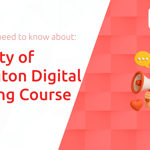
Financial literacy is a cornerstone of personal empowerment and long-term success. From everyday budgeting decisions to major investments, having a solid grasp of financial principles can transform your life. Online finance workshops offer an accessible path to building these essential skills, without sacrificing your busy schedule. Whether you’re a student planning for independence or a professional aiming to optimize savings, these courses provide structured guidance, practical tools, and interactive experiences that drive results.
In an era where financial products are increasingly complex, understanding how money works is more vital than ever. Mortgage terms, student loan conditions, e-wallet systems, and peer-to-peer lending platforms have created a landscape filled with both opportunity and pitfalls. Without proper education, individuals can fall prey to high interest rates, hidden fees, or fraudulent schemes, impacting their credit and well-being for years.
By acquiring critical personal and professional skills in a structured environment, learners gain the confidence to navigate these complexities. They can decipher loan agreements, compare investment options, and adopt strategies that align with their life goals. This fosters resilience against economic uncertainty and enables informed decision-making at every stage.
Comprehensive workshops typically explore a range of subjects designed to address daily challenges and long-term aspirations. Core modules often include:
These topics are often reinforced through interactive simulations and real-world examples, ensuring learners can apply concepts immediately to their own financial situations.
Whether you prefer a guided journey or self-directed study, online finance workshops adapt to your life. Platforms offer:
Many providers award certificates or microcredentials upon completion, which can bolster resumes and showcase expertise to employers or peers.
Choosing the right workshop means aligning with your goals, budget, and schedule. Here’s a snapshot of leading providers:
When evaluating options, consider course depth, live support, and how well the schedule matches your learning style and availability.
Online finance workshops deliver measurable results. Participants often emerge with:
Graduates of these programs report feeling empowered to face upcoming life events—buying homes, funding education, and planning retirement—with greater peace of mind.
Financial education is not a one-time effort but a continuous journey. Markets evolve and new instruments like digital currencies, e-wallets, and peer-to-peer platforms become commonplace. By enrolling in workshops that address the latest trends, you stay ahead, making smarter choices in volatile times. Consider workshops focused on AI-driven investing tools or inflation hedging strategies for a truly future-proof skill set.
Moreover, joining a community of peers and mentors offers networking opportunities and accountability. Discussion forums and group projects foster collaboration, turning solitary study into a shared adventure. These connections often transform into lasting support networks that benefit career development and personal growth long after the workshop ends.
If you’re ready to sharpen your money management skills, start by outlining your objectives. Do you need help crafting a budget, or are you aiming to build an investment portfolio? Use that clarity to select a course that aligns with your timeline and budget. Sign up for a free workshop today and begin practicing key concepts with real-world exercises.
Remember, every expert started with basic lessons. By dedicating time and energy to structured learning, and by applying concepts to your daily life, you build momentum. Each budget you create and each debt you reduce brings you closer to financial freedom.
Embark on this journey now and join thousands who have transformed uncertainty into opportunity. With accessible, high-quality online finance workshops, you can empower your future financial decisions and unlock new possibilities for growth and stability.
References













